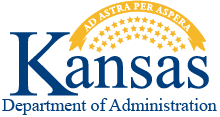Bulletin 24-01 - Guidelines Regarding Standby Pay
1.0 - SUBJECT: Guidelines Regarding Standby Pay
2.0 - EFFECTIVE DATE: June 9, 2024
3.0 - DISTRIBUTION: State of Kansas HR Directors & Managers
4.0 - FROM: Kraig Knowlton, Deputy Secretary of Management & Director of Personnel Services
DATE: May 23, 2024
5.0 - PURPOSE: Kansas Administrative Regulation (K.A.R.) 1-5-26 establishes the stand-by compensation policy for non-exempt, State of Kansas employees. Stand-by compensation applies when an employee is required at the direction of an agency to remain available to the agency for set periods of time outside of the employee’s regularly scheduled work hours. The regulation provides that employees are compensated at $1.00 per hour for this time, and that amount can be increased pursuant to Memoranda of Agreements (MOA’s) with employee organizations.
While K.A.R. 1-5-26 establishes the authority and broad technical parameters for the use of stand-by compensation, there is very little guidance with respect to the use of stand-by compensation provided in the regulation .This has resulted in the inconsistent use of stand-by compensation throughout the State workforce, including frequent examples of employees who are required to be on stand-by for virtually every hour of every day outside of their regular work schedule throughout the year. This Bulletin is being issued to establish guidelines and clarify expectations regarding the administration of stand-by compensation and the provisions outlined below will become effective with the pay period beginning on June 9, 2024.
6.0 - PROCEDURES:
6.1 - Although the regulation states that stand-by assignments are to be limited to work situations where “a probability of emergency recall of a non-exempt employee or employees exists,” stand-by should only be used in situations where there is a high probability of emergency recall, not just any probability.
a) It is also important to note that the high probability must be for emergency recall of the employee. This means that the situation for which stand-by is being required must be one that could result in an emergency, not an inconvenience or something that could wait until the employee or another employee’s regular work hours to be addressed.
6.2 - While receiving stand-by compensation, an employee must be able to access work devices and/or report to the workplace within a reasonable timeframe and be capable of performing necessary duties.
a) If an employee is traveling, attending an event or otherwise does not have access to a work device or the ability to return to the workplace, they should not be receiving stand-by compensation.
b) Similarly, if an employee is ill, has consumed alcohol or taken medication that impairs their ability to perform necessary duties, they should not be receiving stand-by compensation.
c) Employees who receive stand-by compensation should be made aware of these expectations, and if they know that they will be unable to abide by them, they should inform their supervisor so that the agency can make other arrangements.
6.3 - While some regular or routine duties are ongoing, such as monitoring of building or IT systems, the same employees should not be on stand-by for every hour outside of their regularly scheduled duties, every workweek, throughout the year.
a) Based on the expectations set out in subsection 6.2 above, it is simply not reasonable to expect a single employee to be continuously available to the agency every hour outside of their regular work schedule of every day of the year.
b) Work-Life balance is incredibly important, and employees must have the ability to live their lives and have “down time” during which they are not subject to emergency recall, so agencies should avoid the continuous assignment of stand-by responsibilities to the same employees every pay period.
c) Whenever possible, these duties should be rotated amongst multiple employees. In situations where other non-exempt employees are not available for stand-by assignments, supervisory and management staff in exempt positions should assume those responsibilities.
d) Any employee who is to be scheduled for stand-by responsibilities should be notified of those responsibilities at least one week in advance of when those responsibilities are to take effect.
e) Therefore, effective with the date of this Personnel Bulletin, no employee should receive stand-by compensation in excess of 80 hours in a workweek without receiving express approval from the Department of Administration, Office of Personnel Services (OPS) prior to exceeding that total.
f) In general, no employee should receive stand-by compensation after having used accrued leave in excess of two hours during their regularly scheduled work hours. Exceptions may be made on a case-by-case basis but must be approved by OPS.
g) Routine audits will be conducted, and violations of the provisions of this Bulletin will be reported to the Governor’s Office.
7.0 - REFERENCES: K.A.R. 1-5-26
8.0 - CONTACT PERSONS:
For General Policy Questions:
Danelle Harsin, Deputy Director
Danelle.Harsin@ks.gov
(785) 296-4383
For SHARP Questions:
Michelle Huntsman, HR Professional
Michelle.Huntsman@ks.gov
(785) 296-7232


